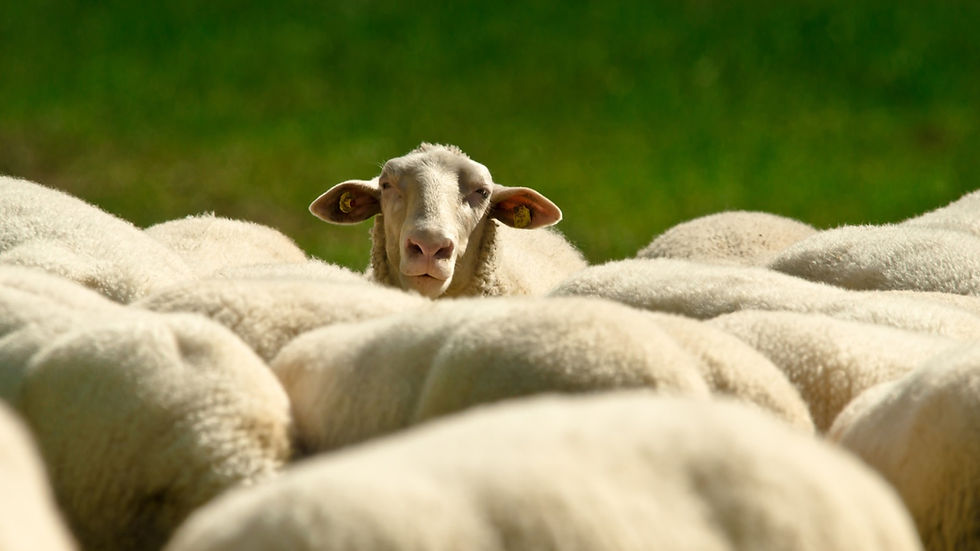Russia recognising Ukraine rebel areas
- Staff Writers
- Feb 21, 2022
- 4 min read

Russian President Vladimir Putin has signed a decree recognising two separatist regions - Donetsk and Luhansk - in eastern Ukraine as independent entities.
Putin announced his decision in a televised address and in phone calls to the leaders of Germany and France, who voiced disappointment, the Kremlin said.
The move could torpedo a last-minute bid for a summit with US President Joe Biden to prevent Russia from invading Ukraine.
Australian Home Affairs Minister Karen Andrews told reporters on Monday:
"Our preference is also for there to be a diplomatic response to any unrest in the world. Sanctions is something that we could consider, but we are looking for a peaceful resolution of the matters between Russia and the Ukraine, and we will continue to promote a diplomatic response."
Australian Labor Party federal opposition leader Anthony Albanese tweeted his support on Tuesday for Ukraine:
British Prime Minister Boris Johnson learned of Putin's decree walking into a press conference on Monday:
"I gather just as I came into this press conference that Vladimir Putin has effectively announced that Russia is recognising the breakaway republics of Donetsk and Lugansk. This is plainly in breach of international law. It's a ... flagrant violation of the sovereignty and integrity of Ukraine," Johnson told a press conference.
"It is a repudiation of the Minsk process and the Minsk agreements, and I think it's a very ill omen and a very dark sign."
Russia's rouble currency extended its losses as Putin spoke on the issue, falling 3.3 per cent on the day to 79.83 per US dollar.
Putin held a long address, delving into history as far back as the Ottoman empire and as recent as the tensions over NATO's eastward expansion - a key irritant for Russia in the present crisis.
He described Ukraine as an integral part of Russia's past without a tradition of genuine statehood of its own.
He said the east of the country covered ancient Russian lands.
"If Ukraine was to join NATO it would serve as a direct threat to the security of Russia," he said.
Putin has for years worked to restore Russia's influence over countries that emerged after the collapse of the Soviet Union, with Ukraine holding an important place in his ambitions.
Russia denies any plan to attack its neighbour but it has threatened unspecified "military-technical" action unless it receives sweeping security guarantees, including a promise that Ukraine will never join NATO.
Recognition of the rebel-held areas could pave the way for Moscow to send military forces into the two separatist regions - Donetsk and Luhansk - openly and argue that it is intervening as an ally to protect them against Ukraine.
Russian parliamentarian and former Donetsk political leader, Alexander Borodai, said separatists would look to Russia to help them wrest control of the parts of the two regions that are still under the sway of Ukrainian forces.
The European Union warned of sanctions from the 27-member bloc should Moscow annex or recognise the breakaway regions in the east of Ukraine and largely controlled by Russia-backed separatists. The EU's foreign policy chief Josep Borrell said after a meeting of the bloc's foreign ministers:
"If there is annexation, there will be sanctions, and if there is recognition, I will put the sanctions on the table and the ministers will decide."
Earlier this week, US and European officials said the US and allies were not totally in agreement about how to respond in case of stepped-up support for pro-Russian separatists.
It will also narrow the diplomatic options to avoid war, since it is an explicit rejection of a seven-year-old ceasefire mediated by France and Germany, touted as the framework for future negotiations on the wider crisis.
Separately, Moscow said Ukrainian military saboteurs had tried to enter Russian territory in armed vehicles leading to five deaths, an accusation dismissed as "fake news" by officials in Kyiv.
The developments fit a pattern repeatedly predicted by US and allied governments, who accuse Russia of preparing to fabricate a pretext to invade Ukraine by blaming Kyiv for attacks and relying on pleas for help from separatist proxies.
The US says Russia has now massed a force numbering 169,000-190,000 troops in the region, including pro-Russian rebels in eastern Ukraine.
Hours earlier, French President Emmanuel Macron gave hope of a diplomatic solution, saying Putin and his US counterpart Joe Biden had agreed in principle to meet.
Putin said Macron had told him the US had changed its stance on Russia's security demands, without specifying how.
The White House said Biden had accepted the meeting "in principle" but only "if an invasion hasn't happened".
The US, which heads the NATO alliance, has flatly rejected the idea of excluding Ukraine for good or reversing NATO's eastward enlargement of the last three decades but has offered talks on weapons deployments and other security issues.
Kremlin spokesman Dmitry Peskov said a call or meeting between Putin and Biden could be set up at any time but there were no concrete plans yet for a summit.
Macron's office and the White House said details would be worked out by US Secretary of State Antony Blinken and Russian Foreign Minister Sergei Lavrov later this week.
Lavrov confirmed that he planned to meet Blinken in Geneva on Thursday, and said there had been some progress in talks on European security.
Ukraine's Foreign Minister Dmytro Kuleba said on Monday he had asked member states of the United Nations Security Council to hold urgent discussions on practical steps to guarantee his country's security and on de-escalating the tensions with Russia.



Comments